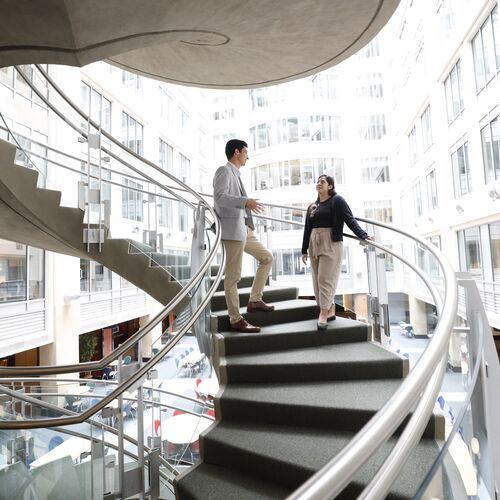Enhancing Community Resilience (EnCoRe)
The Gulf Research Program's Enhancing Community Resilience (EnCoRe) Initiative is a long-term community engagement program that partners directly with select communities in the coastal regions of the Gulf Coast States and Southcentral Alaska to build and enhance health and community resilience.
Completed
Description
The Enhancing Community Resilience (EnCoRe) Initiative partners directly with communities in the coastal regions along the Gulf Coast and Southcentral Alaska to build and enhance health and community resilience. The creation of EnCoRe was informed by recommendations from a 2019 National Academies’ consensus study Building and Measuring Community Resilience: Actions for Communities and the Gulf Research Program. Specifically, Recommendation 5 states, "The Gulf Research Program should develop a major, coordinated initiative around building or enhancing community resilience in communities across the Gulf region."
Mission
To build the capacity of Gulf of Mexico and Alaskan communities through engagement, education, collaboration, and integration of data and science into decision-making in order to advance community-based efforts to achieve healthy, resilient, and thriving communities that are equitable and inclusive for all.
EnCoRe's Goals
- Reduce inequities in health and community resilience.
- Advance research and practice in health and community resilience.
- Build the capacity of communities to 1) address the impacts of climate change and disasters on at-risk populations, and 2) sustain their disaster and climate resilience efforts.
EnCoRe will examine community challenges and promote solutions through two frameworks that influence the health and resilience of individuals and communities:
- Six Community Capitals of Resilience [1]
- Social Determinants of Health [2]
Community capitals represent the different types of assets of a community. The health and well-being of a community and its ability to absorb, recover from, and adapt to adverse events and disasters depends on the resilience of numerous intersecting systems across multiple community capitals. Health inequities are the result of a disproportionate and unjust distribution of social determinants of health (SDHs). SDHs are “conditions in the environments in which people are born, live, learn, work, play, worship, and age that affect a wide range of health, functioning, and quality-of-life outcomes and risks.” Resilience-building efforts that address SDHs can improve conditions, decrease risk and vulnerability, and facilitate positive health outcomes – thus reducing health inequities and ultimately advancing health equity.
[1] For an explanation of the six community capitals see Building and Measuring Community Resilience: Actions for Communities and the Gulf Research Program(2019), p. 16.
[1] For more information about the social determinants of health see Communities in Action: Pathways to Health Equity Conceptual Model and https://www.healthypeople.gov/2020/topics-objectives/topic/social-determinants-of-health.

Contributors
Committee
Chair
Member
Member
Member
Member
Member
Member
Member
Member
Member
Member
Member
Member
Member
Staff
Francisca Flores
Lead
Maryann Terrana
Laila Reimanis
Francisca Flores
Major units and sub-units
Gulf Research Program
Lead
Gulf Research Program Executive Office
Lead
Discover
Events
Right Now & Next Up
Stay in the loop with can’t-miss sessions, live events, and activities happening over the next two days.
NAS Building Guided Tours Available!
Participate in a one-hour guided tour of the historic National Academy of Sciences building, highlighting its distinctive architecture, renowned artwork, and the intersection of art, science, and culture.